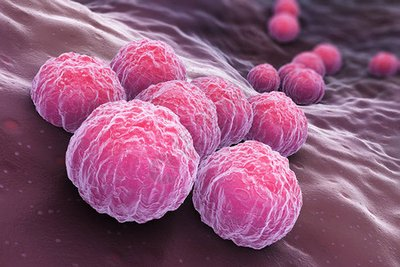What Is The Incubation Period For Chlamydia In Men?
Chlamydia is usually an infectious disease caused by chlamydia and is generally spread through sexual contact. The site of infection for this disease is usually in the genital tract, and infection in men may also cause diseases such as urethritis and prostatitis.

So, how long is the incubation period for chlamydia in men?
The incubation period for chlamydial infection in men is 1 to 3 weeks, with an average of 2.5 weeks. After the incubation period, patients may experience symptoms such as frequent urination, urinary urgency, painful urination, urination difficulty, and redness of the urethra.
Few patients find out that they are infected during the incubation period because the symptoms are not evident during the incubation period. Also, if one has a relevant health checkup, one may not be detected because there is insufficient concentration of the germs in the body.
Therefore, if a patient suspects that they may be infected with chlamydia or if symptoms appear, it is best to seek medical attention for examination promptly. If left untreated or improperly treated, it may lead to other reproductive system diseases, such as prostatitis.
To determine if a man is infected with chlamydia, a secretion culture test can be done to confirm the diagnosis. If secretion extraction is not convenient, there is also the option of doing a urine swab or prostate fluid culture, and the results of these tests are usually available within 24 hours.
After the diagnosis of infection, patients can take doxycycline hydrochloride tablets, levofloxacin hydrochloride capsules, and other drugs under the doctor's guidance for treatment, which can play the role of anti-inflammatory and sterilization. Meanwhile, men should avoid sexual intercourse during the treatment period to avoid cross-infection, which is not conducive to the recovery of the body.
Traditional Chinese medicine Diuretic and Anti-inflammatory Pill is also very effective in the treatment of chlamydia because it has the efficacy of clearing away heat and detoxifying the body, invigorating blood circulation, promoting vitality and relieving pain, inducing diuresis for treating stranguria, which can kill the chlamydia virus that causes diseases in the male genitourinary system, to restore the health of the male reproductive system and alleviate the symptoms of urinary anomalies.
If you are not infected with chlamydia after a doctor's examination, male patients also need to know the ways of infection to facilitate self-protection in daily life. There are several main ways of infection:
1. Autochthonous: The pathogen can be inoculated from the reproductive tract to the eyes or throat by hands or contaminants.
2. Indirect Transmission: Transmission may occur through clothing, utensils, etc. Unstrictly sterilized male obstetric examination instruments may also become a vector of transmission. Contact with objects contaminated by such patients, such as clothes, pants, bedding, towels, bathtubs, flush toilets, etc.
3. Sexual Transmission: the incidence of the disease can be increased by a history of sexual contact (including coitus, kissing, and other forms of sexual contact) with a woman who has the disease, disorganization of sexual relations, early initiation of sexual intercourse, and lack of use of condoms.
Due to the multiple pathways of infection, preventing infection is crucial. Paying attention to cleanliness and hygiene is crucialand to avoid cross-infection. Men should maintain personal hygiene and regularly change their underwear; direct contact is an important mode of transmission, so extreme caution is required in this regard. Try to avoid crowded places, wash hands frequently, and avoid contact transmission. Sexual transmission is also a common method of spreading, so patients should avoid unclean sexual activities.
In summary, the incubation period of chlamydia infection is 1 to 3 weeks. If you are unfortunately infected with this disease, you must promptly go to the regular hospital for a detailed examination for the cause of the timely targeted treatment so as not to lead to more severe consequences.
Recommended Readings:



